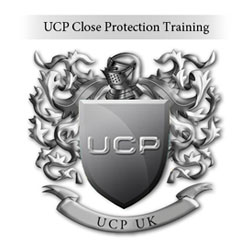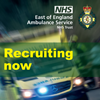Trans Performance

Career strategist Nicholas Harrison offers some advice to police officers who are thinking about resettlement.
There are some careers that encourage ‘labelling’. By that I mean that how you are seen, as a member of a specific institution, can often be sullied by a narrow-minded perception of what it means to be you. Many police officers have found, when entering the civilian world of work, that many employers don’t really understand what it is they do and have established opinions of your capabilities. As a result, many former police officers have found it hard to distance themselves from stereotyping, or labelling as I call it, and are faced with accepting a new role out of necessity rather than desire. I believe that if you start your resettlement journey early and if you gain insight into the authentic you, then finding a satisfying route forward should be made easier.
Here are some points that I hope will help you:
ENDLESS ADVICE
(How ironic when I am offering advice!). Social media is awash with both job-seekers asking for advice and others offering it. It is great that so many people make the effort to respond to these updates, but when I read the conflicting advice given and how much of it is sullied by the personal experiences of the writer, I fear the person who asked the question in the first place will be left even more confused! So, my first piece of advice to anyone embarking upon this journey, is to remain in control. I fear that too many job-seekers reach out to the civilian workplace asking how to do it, and this is fuelling the ‘template’ approach to finding a job. There is no step-by-step guide to finding a job, no clearly structured pathway for you to follow. In short, I feel it is far better for you to listen to yourself, to identify what your career goals are and then seek advice about specific roles and sectors, rather than ask people how to find a job. In other words, you need to make a plan that works for you.
STAND OUT FROM THE CROWD
How many CVs have you seen that start with something like; “Following a X-year career in the police, where I proved myself as being, loyal, trustworthy, a great communicator, highly accomplished leader, able to work in high-pressurised environments, I am now looking for a new challenge”. If this is looking familiar to you, imagine how often recruiters have seen something similar?! The challenge therefore, is to be able to understand what it is that makes you unique, what are your authentic abilities, what characterises you, what situations give you the greatest chance to succeed? I do realise that what I am suggesting is difficult for anyone to do, and especially for people whose lives have almost entirely revolved around a specific set of values, of unit nuances, and adhering to prescribed ways of behaviour. True self-awareness is however something that you need to achieve if you are to allow recruiters to be able to see what it is that makes you different to all the other job-seekers.
AVOID STEREOTYPES
I don’t think it is unfair to say that much of our awareness about the police has been carefully selected and staged by the media, by television, and by fictional writers to name a few. Both the glamorous as well as more depressing side of police life has been portrayed, to a great extent, according to someone’s agenda. I, like 8.6 million other people, have seen ‘The Bill’, of course we get it! Can you see how dangerous assumption can be? So again, it is vital that you surprise people, by knowing who YOU are and being able to tell people what YOU do.
LANGUAGE
The police has a unique vocabulary. Few people will understand the terminology, so ensure, when writing a CV that anyone reading it will understand it all. In addition to actual vocabulary, one thing which belies an institution’s ésprit de corps is the use of ‘we’. Whenever you are in a situation where you need to ‘sell’ yourself, an interview for example, try and avoid telling the listener what the collective organization or team did, and ensure you convey your personal input. The listener wants to know what YOU did, what ‘your’ contribution was
NO TRADE?
I am often asked by people who don’t have a recognized trade, what value they have, and I often work with people whose trade, and skills, are only used within the police. It is easy to look at life through the prism of being a police officer. If you can shift this paradigm to one where you appreciate your value through your collective abilities, visible through the totality of your life, then you will increase your worth. You may see yourself as having limited skills that are transferable to the work place and I would encourage you, before worrying about skills, to recognise your natural abilities. In this way, you will be in a far more commanding position to demonstrate to potential employers your intrinsic value.
“MY MATE SAYES THIS…”
Often, clients start off by saying to me, someone they know has said something and what are my thoughts? Recently this has included people saying that they have been advised to aim as high as they can within an organisation, at the highest pay grade if you like, and if this puts you at risk of what people call the ‘imposter syndrome’ then you can get through it. What I say to everyone I work with is….” It depends!”, again, there are no prescribed, right or wrong answers, it all depends on your aspirations, situation and abilities. Everything you ask must be relevant, and of use, to your unique situation. Additionally, when it comes to friends’ advice, remember they only know what they know. Don’t be afraid to reach out to new people and find things out for yourself.
A PATTERN EMERGES
The connecting thread is to make a plan that works for you, not to follow a well-trodden path. Of course, other people’s experiences will help you, but to take from those experiences what works for you, not replicate someone else’s life. There are three steps in the transitions journey. 1) You need to appreciate who YOU are, to undergo some form of self-awareness training. 2) You need to identify what YOU want to do with your life, as a whole, and then with your career and 3) Identify how YOU can get to wherever it is you wish to get to. To be truly happy at work, I believe you should aim to find a role that you really want and not focus all your attention on what is available. It’s about pursuing a course through the ‘hidden’ job market, identified with research, conversations as well as an element of ‘right place right time’, together with an exploration of the visible, or advertised, routes.
COMPUTERS!
Many clients have told me about their being subjected to endless computer-based assessments, or psychometrics. I know that this is a difficult area to address because in order to approach many organisations about work you will be told to log on to their website where you will find all their vacancies and fill in the on-line application form. I myself, just to keep abreast of what is happening, from time to time, fill out these forms and it is an absolute nightmare! In between the internet crashing and being told my password doesn’t match so I have been locked out of the system, to not really wishing to add any sensitive work experience, to not being able to advance a page if my work history is not exactly as the computer wishes it to be etc. etc. It is enough to start screaming and throwing the laptop out of the nearest window. I get it, but unfortunately businesses have still not got their recruitment processes to be totally compatible to service organisations. This, in turn makes it nigh on impossible, for example, to demonstrate five year’s sales experience and so, like other computer games, you can’t go to the next level! So, what can we do about this? If a business insists you go through this tedious approach, then there is very little one can do. Let’s take this five-year’s sales experience as an example. You, as a police officer, won’t have that, but if you break down the requirements of being a good sales person, you may find that you have all the ingredients. An ability to get on with people, to persuade people to your thinking, to close deals, i.e. to not be afraid to ask for the business, these are all things that can make you actually highly ‘sellable’ and they are all behaviours and abilities that are either naturally present within you or are not, and no amount of police training will be able to rid you of these natural leanings. This is where your networking will come in handy. It is also where you should remember that the recruitment engine of our country is found within the SME market. (small to medium sized businesses). Such businesses, tend not to be too shackled to recruitment functions, and, especially if you live in rural areas, are managed by people who are far more visible within the community, therefore easier to network amongst. Psychometric tests, where the suitability of your personality is judged to an organisation’s requirements can also be problematic for the ex-police job-seeker. Whilst I agree there is value in such systems as a part of a recruitment process, I have yet to see the value in telling an interviewer that you are an INTG personality….is this helpful to you?! Again, from my own experiences, employers who unearth hidden gems amongst job-seekers ae those who prefer to hear a story, something that allows you to articulate your abilities clearly.
EX-POLICE RECRUITERS
There are some wonderful organisations out there and there are also some who clearly see the police community as a relatively untapped income stream. I would definitely add a handful of respected ex-police, or uniformed services, recruitment companies to the mix of other high-street and internet, civilian, recruitment companies, especially if you know what you want to do and have identified specialists. But be aware that very few will be able to help you to plan and manage your own career transitions, not just now, but into the future. Remember as well that recruitment companies are under pressure to fill vacancies to get their placement fee, so often you being able to find a truly suitable role is not their number one priority.
START EARLY
Most people jump straight into ‘How do I get a job’ mode. The pressure you end up under can be immense as you get your CV together, speak to recruiters, talk to your friends who have made this transition and brush up on your interview skills. You can help yourself massively by using your time, whilst still serving, to plan ahead and to carry out all the necessary steps needed to find a suitable and rewarding civilian role. You will need longer than you think to work through knowing who you are and what you want out of life.
THE DREADED CV!
Don’t panic about writing a CV and don’t waste your money on people charging hundreds of pounds to simply rearrange your CV. The best CVs reflect the authentic you and not the person you are supposed to be. Given that they should demonstrate your true competencies and ambitions, I make no pretence to deny that should you realise that your CV needs a lot of work then I will encourage you to complete a career transition course. Your CV really should be looked at together with your online presence and personal branding. It should not be seen as a stand-alone document. Remember, asking people about your CV compels them to say something and you can just end up with endless advice and not much help.
RESEARCH!
So many recruiters complain that candidates at interviews don’t do enough to show that they really understand either the role they are being interviewed for or the organisation. You need to show that not only do you want to work within the sector but that there is something special about what the interviewing organisation does. The ability to show that you are well prepared and suitable comes from carrying out extensive research on the organisation before attending the interview.




